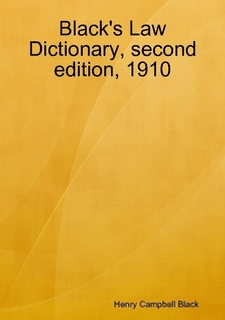The period in which the revolution of the earth round the sun, and the accompanying changes in the order of nature, are completed. Generally, when a statute speaks of a year, twelve calendar, and not lunar, months are intended. Cro. Jac. 166. The year is either astronomical, ecclesiastical or regnal, beginning on the 1st of January or 25th of March or the day of the sovereign's accession. Wharton.
—Natural year. In old English law. That period of time in which the sun was supposed to revolve in its orbit, consisting of 365 days and one-fourth of a day, or six hours. Bract, fol. 3595.
—Year and day. This period was fixed for many purposes in law. Thus, in the case of an estray, if the owner did not claim it within that lime, it became the property of the lord. So the owners of wreck must clnim it within a year and a day. Death must follow upon wounding within a year and a day if the wounding is to be indicted as murder. Also, a year and a day were given for prosecuting or avoiding certain legal acts; e. g., for bringing actions after entry, for making claim for avoiding a fine, etc. Brown.
—Year books. Books of reports of cases in a regular series from the reign of the English King Edward I., inclusive, to the time of Henry VIII., which were taken by the prothonotaries or chief scribas of the courts, at the expense of the crown, and published annually; whence their name, "Year Books." Brown.
—Year, day, and waste. In English law. An ancient prerogative of the king, whereby he was entitled to the profits, for a year and a day, of the lands of persons attainted of petty treason or felony, together with the right of wasting the tenements, afterwards restoring the property to the lord of the fee. Abrogated by St. 54 Geo. III. & 145. Whar-tion.
—Year to year, tenancy from. This estate arises either expressly, as when land is let from year to year; or by a general parol demise, without any determinate interest, but reserving the payment of an annual rent; or impliedly, as when property is occupied generally under a rent payable yearly, half-yearly, or quarterly ; or when a tenant holds over, after the expiration of his tenn. without having entered into any new contract, and pays rent, (before which he is tenant on sufferance.) Wharton.
—Years, estate for. See Estate fob Years.
Definition of Year
Advertisement
Definitions from Black's Law Dictionary: 2nd Edition and Ballentine's Law Dictionary as are available for each term in each dictionary.
-
Black's Law Dictionary: 2nd Edition
